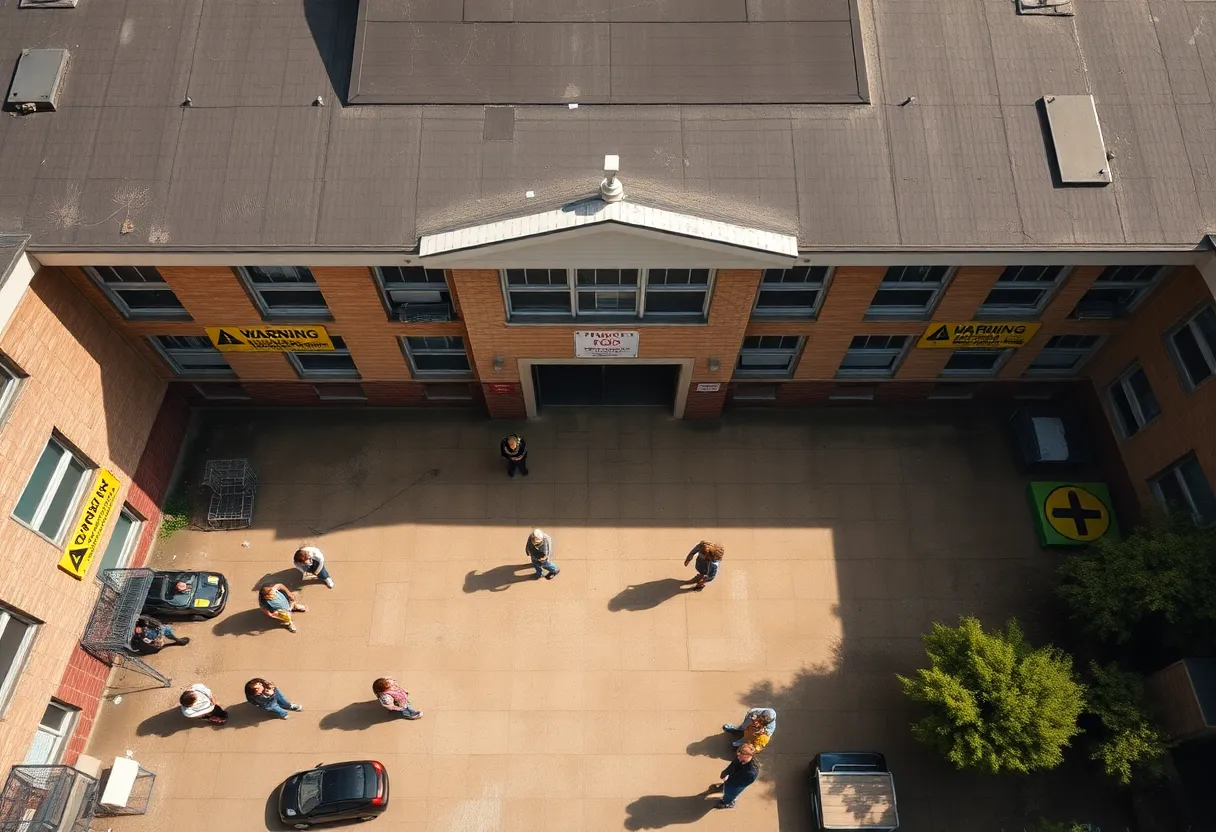News Summary
Philadelphia’s educational institutions are under threat as asbestos exposure leads to several educators being diagnosed with mesothelioma. With approximately 300 school buildings over 70 years old harboring asbestos, safety and health concerns arise. Despite partial closures and negotiations for improved asbestos management, the school district faces a daunting $5 billion challenge for necessary repairs. The need for comprehensive safety measures is urgent, as the health of countless individuals hangs in the balance.
Philadelphia’s Schools Under Siege: Mesothelioma Threat Looms Large
The plight of Philadelphia’s educational system has reached alarming levels as asbestos exposure continues to pose a significant threat to the health of teachers, staff, and students. This crisis has come to the forefront following the diagnoses of several educators with mesothelioma—a deadly cancer linked to asbestos exposure. With much of the city’s school infrastructure dating back over 70 years, the safety of countless individuals hangs in the balance.
The Pitfalls of Aging Infrastructure
In Philadelphia, an overwhelming number of school buildings—numbering approximately 300—harbor asbestos-containing materials. Many of these structures were constructed when asbestos was a favored building material, praised for its strength and fire-resistant properties. Unfortunately, it is now well-known that asbestos exposure is directly linked to several life-threatening conditions, including mesothelioma, asbestosis, and lung cancer.
The average age of schools in the district is roughly 73 years, meaning they have long surpassed their intended lifecycle, raising concerns around safety and health. Despite temporary and partial closures aimed at asbestos abatement, the risks associated with these hazardous materials still loom large.
Current Events: Legal Action and Investigations
Recently, one teacher with a diagnosis of mesothelioma and another educator who has initiated legal action against the district for a similar health issue have raised alarms about the potential for widespread exposure. The latter worked at Frankford High School, which was shut down in 2023 due to the urgent need for asbestos remediation. This situation reflects a chilling reality for those working within Philadelphia’s educational institutions, many of which reside in older buildings riddled with hazards.
The Philadelphia School District is currently embroiled in negotiations with the U.S. Department of Justice over the handling of asbestos management. At a recent board meeting, discussions aimed at reaching an agreement were stymied due to a lack of finalization between the two parties, leaving unanswered questions about the implementation of effective safety measures.
Regulations and Resource Challenges
Federal regulations dictate that school districts must conduct routine inspections and maintain asbestos management plans. However, the Philadelphia School District faces a daunting challenge: a whopping $5 billion is needed for critical structural repairs and comprehensive remediation of hazardous materials. This staggering figure is daunting, especially amid tight budget constraints, placing an immense strain on efforts to safeguard the health of students and faculty alike.
In response to these hazards, the district has attempted to bolster safety protocols by requiring thorough inspection reports. Additionally, plans to provide “swing space”, or temporary relocation, for students and staff have been established whenever asbestos is identified. While these measures signal a commitment to safety, ongoing scrutiny from the Department of Justice implies that more stringent approaches may be necessary.
The Path Forward
As asbestos exposure in schools continues to be an urgent public health concern, the risk of mesothelioma and other related diseases becomes ever more pressing. The experience of Philadelphia is not unique and echoes a national issue that affects many aging school buildings across the country.
Although awareness about the dangers of asbestos has grown, the battle for comprehensive health safety measures persists. Stakeholders around the nation must take heed of Philadelphia’s situation, ensuring that decisive actions are taken to protect vulnerable populations. The clock is ticking, and the health of countless individuals depends on effective and timely interventions to address this historical menace.
If you or someone you love has been diagnosed with an asbestos-related disease, resources are available to support you. The need for action is clear, and it is imperative that educational institutions prioritize the health and safety of their communities. It is crucial to push for comprehensive programs to mitigate exposure risks and remediate hazardous environments.
Deeper Dive: News & Info About This Topic
HERE Resources
Philadelphia School District Faces Criminal Charges Over Asbestos Violations
The Lingering Danger of Asbestos: A Call for Action
Mounting Concerns Over Asbestos Use in America
Groundbreaking Criminal Charges Against Philadelphia School District Over Asbestos Mismanagement
EPA’s Daring Move: Reconsideration of Chrysotile Asbestos Ban Raises Alarms
South Carolina Supreme Court Delivers Major Blow to Atlas Turner in Asbestos Case
Paradise Hills Pool Set to Make a Splash Again After Closure
Shock Charges Filed Against Philadelphia School District Over Asbestos Hazards
Wallace Family’s Nightmare: Asbestos Scare Forces Evacuation
Philadelphia’s Public Schools Hit with Federal Criminal Charges Over Asbestos Inspections
Additional Resources
- Mesothelioma Guide: Philadelphia School District Under Investigation for Asbestos
- Wikipedia: Asbestos
- Courthouse News: Teacher Sues Philadelphia School District Over Asbestos Exposure
- Google Search: Asbestos in Schools
- Philadelphia Inquirer: Mesothelioma in Philadelphia School District
- Google Scholar: Asbestos Mesothelioma Schools
- Asbestos.com: Philadelphia School Closes Due to Asbestos
- Encyclopedia Britannica: Asbestos



















